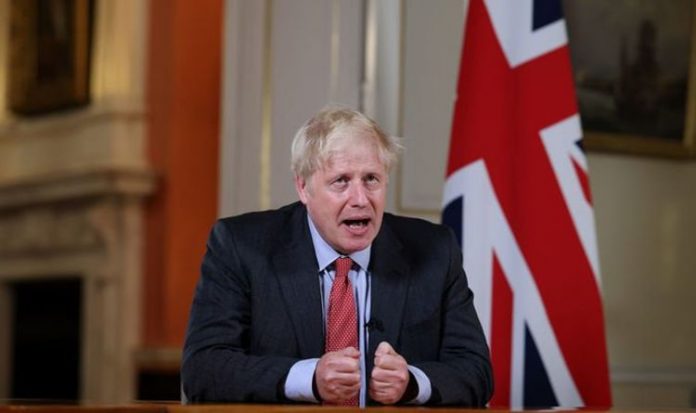On the eve of Chancellor Rishi Sunak’s spending review she begged for an initial £310million investment in a Life-Sciences Charity Partnership Fund. Miss Mitchell said: “COVID-19 has had a devastating impact on medical research charities, who are the lifeblood of research and development in the UK. The pandemic has disrupted clinical trials, put an end to mass fundraising events, closed charity shops and has ultimately forced charities to make heart-breaking decisions to cut funding for research. Sadly, it is patients who will pay the price.
“That’s why Cancer Research UK and other medical research charities have joined forces with the Association of Medical Research Charities to ask that you urgently bridge the gap and protect research through a Life-Sciences Charity Partnership Fund. Now is the time to act. A £310m investment next year as part of the spending review, and commitment to years two and three, would make all the difference.”
The Daily Express revealed the extent of the cash crisis in September when Britain’s biggest cancer charity said it could make 1,500 scientists unemployed because of a significant drop in income due to the pandemic.
Swingeing cuts could see it losing one third of its 4,000 researchers, potentially putting tens of thousands of lives at risk.
The charity expects to slash research funding by £450m over three years, hampering attempts to find new treatments for the deadly disease.
No new research projects have been funded this year because of the cash crisis.
And if the situation continues it would be a hammer blow to cancer sufferers across the UK. There are around 367,000 new cases every year, equal to 1,000 a day.
CRUK expects fundraising income to drop by £300m over the next three years.
The charity funds research in more than 90 universities, hospitals and Institutes across the UK, but the crisis means it would ultimately have to reduce the number of places it can fund, supporting fewer scientists in the lab, fewer doctors in the clinic and treating fewer patients on clinical trials.
The emergency would also mean cutting its community engagement by 25 percent, meaning less work on the prevention and early diagnosis.
In her letter Miss Mitchell said: “We’ve seen the transformative power of science and research in the exciting development of several potential COVID-19 vaccines. But as you know [the virus] is not the only health crisis the UK is facing. One in two people will develop cancer in their lifetime, and heart and circulatory diseases cause more than a quarter of all UK deaths.
“Thanks to the work of medical research charities, we’ve seen dramatic improvements in the outlook for many people with serious diseases. To continue with leaps in progress, we need action now. Some of the world’s most successful treatments were discovered by researchers funded by medical charities in the UK; from development of radiotherapy, which is now a cornerstone treatment for cancer, to pioneering research into the drug Xolair, which has helped 250,000 people living with severe asthma.
“But the pandemic has put the brakes on progress like this. The AMRC predicts a 41 percent decrease in research spend across the sector for 2020-2021, which will take up to four-and-a-half years to return. Cancer Research UK has already had to cut its research spend by £44m this year alone. We do not want to be forced to make more tough decisions like these.
“Behind every piece of research is a team of scientists, from those at the top of their game to those carving their place in the scientific community. Without support in the spending review, we risk losing a generation of scientists, damaging our research infrastructure and hampering our ability to remain a world-leader in science.
“As the Government carefully navigates our recovery from COVID-19 and seeks to establish a bold new vision for the UK outside of Europe, you have the opportunity to honour your manifesto commitment to cement the UK’s position as a scientific superpower. As this week has taught us, today’s medical research is tomorrow’s curative treatment. Collectively, medical research charities have saved millions of lives. With your backing we can save millions more.”







